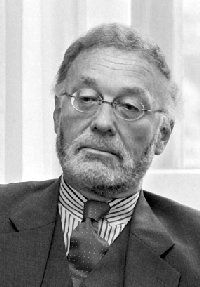The French and German Embassies in Ukraine invited the Kyivans to a celebration of the 40th anniversary of the Elysian Treaty. The history of relations between Germany and France in the 19th and first half of the 20th centuries is not one of peaceful neighborly relations, but of constant political and military confrontations (the Napoleonic Wars, Franco-Prussian War of 1870-1871, World Wars I and II). Historically, the words German and French were associated with the word enemy in these two countries for decades. In international conflicts they invariably supported the opposing sides, while the border between the two countries remained very unstable.
In the fateful year of 1963, eighteen years after World War II, in which France and Germany (Third Reich) were sworn enemies, the governments of Konrad Adenauer and Charles de Gaulle singed the Treaty of Friendship. At that time, the people in both countries remembered only too well the victories, defeats, losses, and humiliation of the war. Be that as it may, the treaty was signed, and it has lasted for forty years. Meanwhile, young generations of Germans and French are raised in a totally different spirit from that of their parents and grandparents. Currently, the relations between France and Germany — in the sphere of politics, science, and education — are a model for countries within and without the EU.
Ambassadors Dietmar Studemann of Germany and Philippe de Suremain of France chose an attractive and refined way to celebrate the 40th anniversary of the Elysian Treaty, namely a musical concert whose program became a symbol of European unification. Tellingly, this unification also involved the Ukrainian side, as the performance included pieces by Ukrainian (Yevhen Stankovych), French (Maurice Joseph Ravel), and German (Ludwig van Beethoven) composers. Musical compositions were performed by the Symphony Orchestra of the National Philharmonic of Ukraine, under the direction of German conductor Wolf-Dieter Mauer, and brilliant French pianist Eric Le Sage.
Before the concert, the German and French ambassadors addressed the audience. In part, Mr. Philippe de Suremain said: “When signing the Elysian Treaty, General de Gaulle was very nervous. Looking back on those days, I feel just as nervous. Forty years have passed since the event which cemented the rapprochement between the two nations whose numerous fratricidal conflicts engulfed the whole continent. This event marked the beginning of an unprecedented active relationship between the two states. This is by no means the success of the French and Germans only. This is the success of all our European partners, the success of Europe as a whole. Evidence of this is the presence of my European colleagues in this audience. The fact that ranking Ukrainian officials are also present is also very symbolic. I would also like to stress the deeply symbolic meaning of the unity of the French, German, Ukrainian, and European flags hanging above this stage.
My thanks go to the German conductor and the French soloist who kindly agreed to come to Kyiv, as well as the Orchestra of the National Philharmonic of Ukraine whose mastery is recognized the world over, and Mr. Ostapenko, director of the National Philharmonic, for welcoming us in this concert hall. I believe that with such a cast the success of this evening is guaranteed. Thank you.”
As for the concert program, Beethoven’s Heroic Symphony in the Memory of a Great Personality (1804) quite suited the occasion. Notably, musicologists claim that young Beethoven planned to dedicate his Third Symphony to the First French Consul, Napoleon Bonaparte, who, he hoped, would rid Europe of tyranny. The Symphony ends with a triumphant finale titled Friedenfest [celebration of peace].
The concert was followed by a reception organized by the two embassies and attended by government officials, deputies, diplomats, in part, the ambassadors of the US and Turkey, clergymen from various Ukrainian churches, writers, and journalists.
The Elysian Treaty of 1963 and the social (not only political) forms of its implementation could serve as a model for regulating our relations with our immediate neighbors in the East and West. It is time we stopped complaining about the wrongs done to Ukraine and began to recognize our own faults for what they are. I only wish more of our celebrations were held in the Philharmonic rather than the Palace Ukraine.








